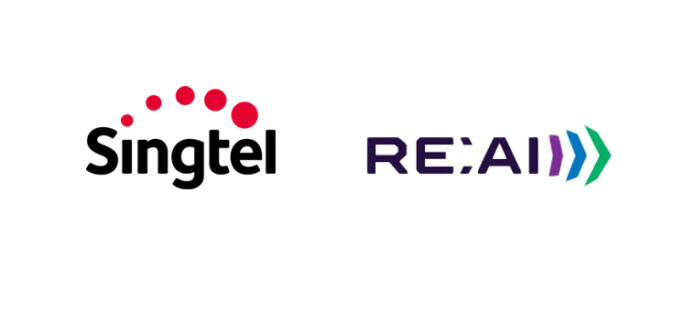Singtel said that the new offering will enable customers to deploy, manage and scale their AI applications
Singaporean operator Singtel announced the launch of RE:AI, its new Artificial Intelligence Cloud Service (AI Cloud) offering, the telco said in a release.
The telco noted that this launch is chiefly aimed at democratizing AI giving enterprises and public sector customers affordable access to AI technologies that can seamlessly transform their operations without needing to invest or maintain in-house infrastructure and supporting resources.
Singtel explained that its new turnkey AI development and deployment platform will combine AI compute infrastructure like, graphics processing units (GPUs) and storage, AI workspaces and tools, with diverse networks such as 5G, fixed or quantum safe networks. These will be delivered through Singtel’s patented orchestration platform, Paragon.
The Asian carrier highlighted that the new offering will enable customers to deploy, manage and scale their AI applications without having to worry about the overheads of complex infrastructure.
Singtel also said it aims to democratize AI by working with strategic partners in five ways — through the creation of a research and development AI Cloud platform, facilitation of AI adoption for the advanced manufacturing sector, ecosystem development to accelerate the deployment of AI solutions, curation of tech incubation and acceleration program for promising tech companies and AI skills training to empowering its workforce. To achieve this, a total of five Memoranda of Understanding (MOU) were signed with partners in these areas.
“With the launch of RE:AI, we’re significantly reducing entry barriers, making AI easily accessible to enterprises, government agencies, research communities and academia,” said Bill Chang, CEO of Singtel Digital InfraCo.
“Many enterprises and public sector customers have shown keen interest to bring AI into their operations. However, the high costs and long lead times for GPUs, the need for special environments to host them due to their intense energy utilization, the complexity of AI technology and the lack of talent are key friction points in their respective journeys,” added Chang.
He went on to say that with the new launch, Singtel will attract global AI tech companies to expand into the region with the telco’s market access, which will be key to positioning Singapore as a regional AI hub.
The launch of RE:AI is part of Singtel’s strategy to accelerate digital transformation for enterprises, starting with digital infrastructure and scalable AI solutions. One of the early initiatives include the development of a new generation of hyper-connected AI-ready data centers through its Nxera data centre arm.
There have also been recent partnerships in the AI field with global and local ecosystem companies such as Hitachi Group in Japan, the establishment of a GPU cloud alliance with Vultr and GMI Cloud in the US and Nscale in Europe as well as collaborations with Bridge Alliance, AIS, Telkom Group and Maxis to bring Singtel’s AI Cloud offerings to enterprises in the region.
Singel aims to expand the use of AI to improve operations and customer experience as the technology advances, Tay Yeow Lian, managing director of networks at Singtel Singapore, recently told RCR Wireless News.
“We’re always looking for ways to get more out of technology – especially in the areas of AI and machine learning. Singtel has been using AI for many years in various ways from improving network performance and operations to customer experience. But we want to do more with the technology as it advances,” the executive said.
He went on to say that AI also plays a key role in streamlining Singtel’s operating efficiency, network optimization and management. “We operate AI-powered base stations that handle troubleshooting and maintenance assessments as well as automatically switch off radios during low traffic periods to conserve energy,” he said.
“Additionally, we’re looking into using AI and machine learning to better identify and diagnose potential scam messages, review URL, and identify language used within messages so that the network can then take the appropriate action – such as blocking the message or sending an advisory message to the user to take action. We’re still refining the process and will deploy this in due course,” said Yeow Lian.

